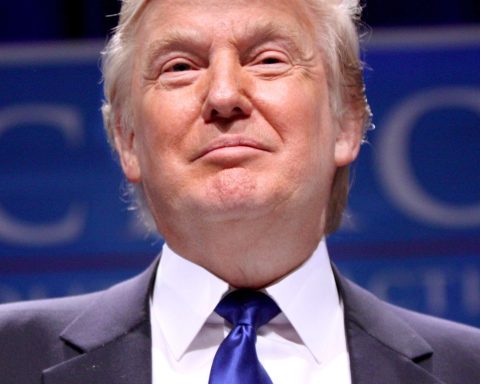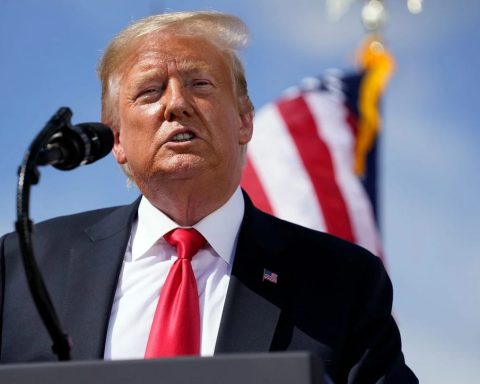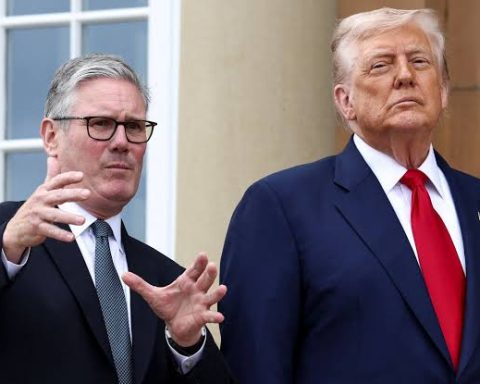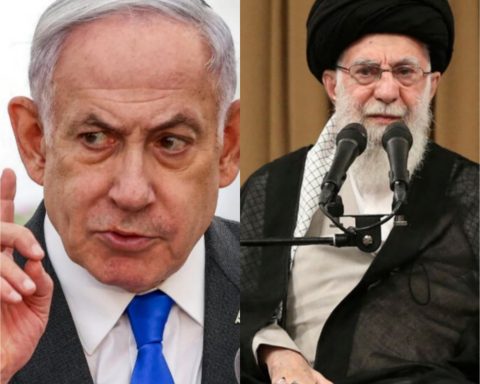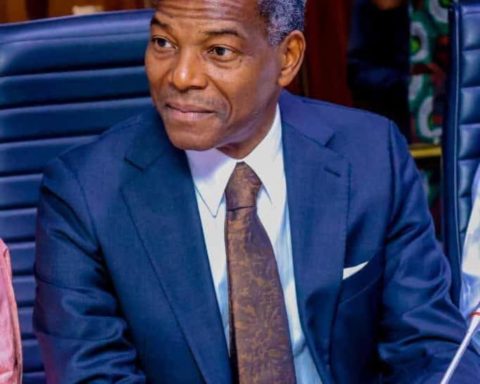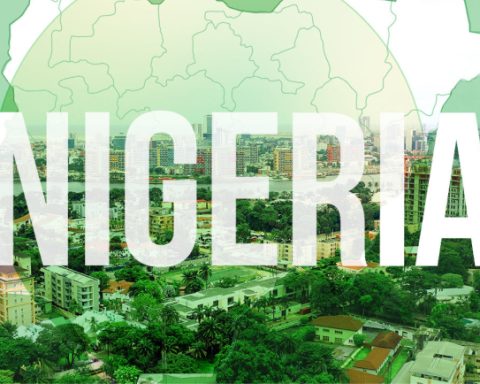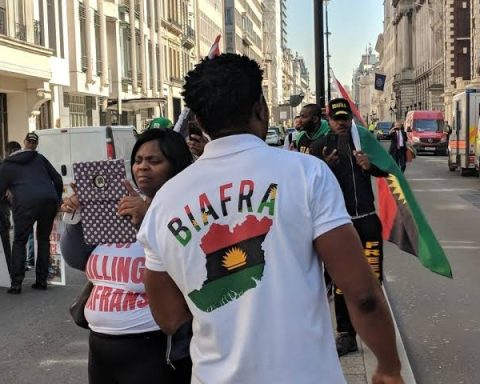Donald Trump’s tariff policies have sparked intense debate and market volatility, leaving many wondering where he’s headed. With the U.S. imposing a minimum 145% tariff on certain Chinese goods and China retaliating with a 125% tariff on US goods effective April 12, 2025, the global trade landscape is growing increasingly complex.
Under the U.S.-Mexico-Canada Agreement (USMCA), goods that comply with regulations can enter tariff-free. However, non-compliant goods face a 25% tariff, except for energy and potash, which are taxed at 10%.
Join our WhatsApp ChannelTrump also introduced a baseline 10% tariff on all U.S. imports from April 5, 2025, with higher rates for countries running trade surpluses with the U.S. This complex web of tariffs represents a “crisscrossing” of trade barriers, with both the U.S. and China imposing and retaliating with tariffs.
Ripple Effects of Crisscrossing Tariffs on Global Markets
The recent escalation of tariffs between the U.S. and China has had significant implications for global markets, some of which are:
Market Volatility: BBC reports that China raised tariffs on U.S. goods to 125% has intensified the trade conflict and also caused market instability. CNBC reports that the ongoing tariff disputes have led to market instability, also affecting retirement savings and consumer confidence.
Economic Uncertainty: CNN has reported that Trump’s tariff decisions have sparked retaliatory measures, increased recession risks, and led to economic uncertainty. Reuters warns that global trade could contract by 3-7%, with a 0.7% decline in global GDP, affecting developing countries severely.
Impact on Developing Countries: The Times and Reuters report that tariffs could have a catastrophic impact on the developing nations, worse than foreign aid cuts, due to their reliance on global trade.
READ ALSO: China Imposes 125% Tariffs On U.S. Goods In Retaliatory Move
Global Trade Disruption: China Briefing notes that the U.S.-China trade tensions have disrupted global supply chains, with significant implications for international trade.
Al Jazeera reports that Trump’s recent tariff announcements have led to significant market declines, with the U.S. stock market experiencing its largest two-day drop in history. These developments illustrate how Trump’s tariff policies have created confusion, uncertainty, and threats of a global recession, impacting economies worldwide.
READ ALSO: Concerns About Trump’s New Tariff Collasping AGOA: The Way Forward
President Trump has claimed that his aggressive tariff strategy is yielding results, with around 70 countries expressing interest in negotiating trade deals with the U.S. Reports have it that Trump’s administration has been in discussions with several countries, including South Korea, Japan, and Vietnam, to secure favorable trade agreements.
Negotiations might be ongoing, but it remains to be seen whether they will lead to significant trade agreements or reductions in tariffs. Yet major economic players like China remain resolute in their stance against Trump’s tariffs, complicating the broader trade landscape
Debate about Trump’s tariffs
In all, the discussion around Trump’s tariffs reflects a deep divide between those who see them as a necessary tool for protecting U.S. interests and those who view them as economically harmful and constitutionally questionable.
Trump’s supporters argue that his tariff strategy is a necessary measure to protect American industries and jobs. They believe that by imposing tariffs, the U.S. can level the playing field against countries with high trade barriers, such as China. This perspective is rooted in economic nationalism, which emphasises the need to reduce trade deficits and promote domestic manufacturing. Supporters argue that tariffs can help achieve these goals by making imported goods more expensive and thus less competitive with U.S.-made products.
Conversely, opponents of Trump’s tariffs express significant concerns about the economic impact. Critics like Michael Strain from the American Enterprise Institute warn that these tariffs will lead to higher unemployment and market instability. Others argued that tariffs increase costs for businesses, which can result in layoffs and reduced consumer spending. Experts at ING Think (the economic research division of ING Group, a major Dutch financial institution) and The Atlantic Council highlight that Trump’s tariffs disrupt global supply chains and could lead to a global recession.
They emphasise that these measures harm not just the U.S. but also other countries, as they increase trade barriers and reduce economic efficiency.
In addition to economic concerns, there are also constitutional questions surrounding Trump’s use of emergency powers to impose tariffs. The Council on Foreign Relations notes that this approach raises concerns about the separation of powers between the executive and legislative branches.
The big question is, “Is it really about China, with other tariffs on other countries merely a pretention.
Broader Tariff Actions as Pretense?
While Trump has imposed tariffs on other nations, such as Canada and Mexico, these measures often appear secondary. For example, his universal 10% import duty announced beginning of April 2025 affected multiple countries but was overshadowed by his aggressive actions against China. Chen Zhiwu from the University of Hong Kong suggests that Trump’s focus on China may be more political than economic, aiming to project strength amid growing geopolitical tensions.
Another critical concern is the recent decision to pause tariffs for 99 days on other countries. It further raises questions about whether these actions are part of a broader strategy or reactive measures driven by panic. Reports online indicated that even Trump’s advisers are often left confused by his abrupt decisions.
Strategic Pause and Confusion
There are also concerns that Trump’s tariff policies could have significant political implications, drawing comparisons to Liz Truss, Britain’s shortest-serving Prime Minister. Truss served as Prime Minister from September 6, 2022, to October 20, 2022, lasting just 45 days in office, the shortest tenure in UK history. Her leadership collapsed after her “mini-budget,” which included £45 billion in unfunded tax cuts, caused financial market turmoil, devalued the pound, and led to widespread criticism from her party and the public.
Billionaire Bill Ackman, a former Trump supporter, warned of an “economic nuclear winter,” stating: “Business investment will grind to a halt, consumers will close their wallets and pocketbooks, and we will severely damage our reputation with the rest of the world that will take years and potentially decades to rehabilitate. This is not what we voted for”. Similarly, Republican Pete Sessions told the BBC: “The president must listen… Texans believe a tariff is a tax, and it is not in Americans’ best interests.”
READ ALSO: Expert Highlights Impact Of U.S. Trade Tariff On Nigeria
Experts like Simon MacAdam, deputy chief global economist at Capital Economics, noted that businesses are delaying investments due to the uncertainty surrounding Trump’s approach: “If tariffs are negotiated back down in a few months, you’d be wasting time investing hundreds of millions in new plants”
Where is Trump likely headed?
Donald Trump’s trajectory as he seeks to “Make America Great Again” once more is marked by both ambition and controversy. His policy proposal suggests sweeping reforms to federal governance, immigration, and economic policies. However, the big question remains: Where is he headed, and will he get there safely and gainfully for America?
Dr Mbamalu, a Jefferson Journalism Flow, member of the Nigerian Guild of Editors and Communication Consultant, is the publisher of Prime Business Africa.
Dr. Marcel Mbamalu is a distinguished communication scholar, journalist, and entrepreneur with three decades of experience in the media industry. He holds a Ph.D. in Mass Communication from the University of Nigeria, Nsukka, and serves as the publisher of Prime Business Africa, a renowned multimedia news platform catering to Nigeria and Africa's socio-economic needs.
Dr. Mbamalu's journalism career spans over two decades, during which he honed his skills at The Guardian Newspaper, rising to the position of senior editor. Notably, between 2018 and 2023, he collaborated with the World Health Organization (WHO) in Northeast Nigeria, training senior journalists on conflict reporting and health journalism.
Dr. Mbamalu's expertise has earned him international recognition. He was the sole African representative at the 2023 Jefferson Fellowship program, participating in a study tour of the United States and Asia (Japan and Hong Kong) on inclusion, income gaps, and migration issues.
In 2020, he was part of a global media team that covered the United States presidential election.
Dr. Mbamalu has attended prestigious media trainings, including the Bloomberg Financial Journalism Training and the Reuters/AfDB Training on "Effective Coverage of Infrastructural Development in Africa."
As a columnist for The Punch Newspaper, with insightful articles published in other prominent Nigerian dailies, including ThisDay, Leadership, The Sun, and The Guardian, Dr. Mbamalu regularly provides in-depth analysis on socio-political and economic issues.



